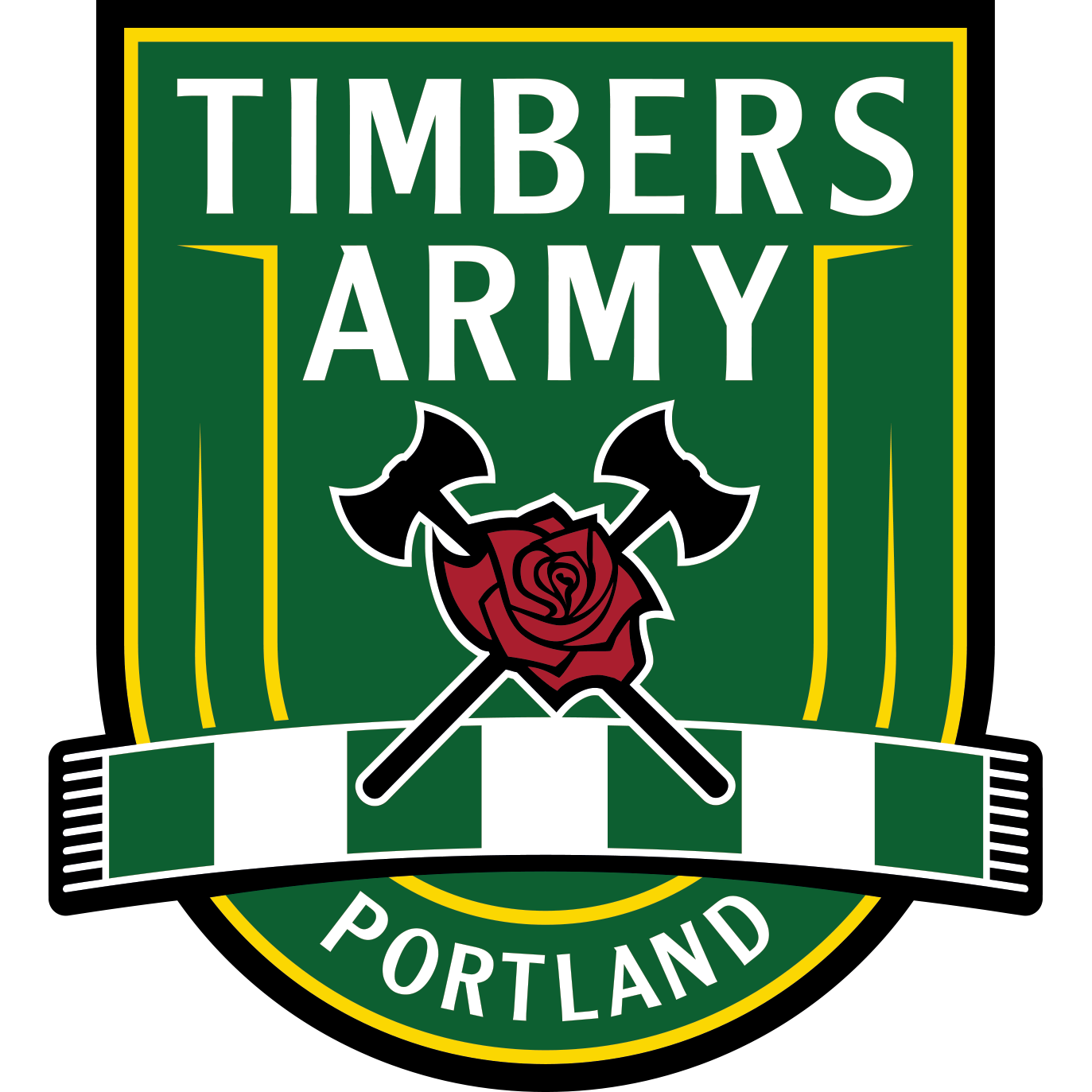—by Chris Rifer
Last week we looked at a few players who had a lot on the line in 2012. For Bright Dike, Freddie Braun, and David Horst, 2012 will prove crucial to determining whether they are borderline MLS players or can make an impact in the top flight.
The task for this week is to look at the Timbers unit-by-unit, and determine whether its stock has risen, stayed flat, or fallen from last October. For all intents and purposes, it appears as though the roster is relatively settled for the season. This past week, the Timbers officially inked Franck Songo’o. The additional signings of Joe Bendik, former Portland Pilot Ryan Kawulok, and Sebastián Rincón seem imminent, with Stumptown Footy reporting that all three were on the receiving end of a team hug fest at training last week.[1]
With Trencito on the DL, that puts the roster at 30 for the season. If Eddie Johnson is on the shelf long term, then the Timbers may have one more roster spot to play with, but in all likelihood the roster on March 12 will look similar to how it looks today.
So, considering the offseason transactions and the Ouija board-like predictor of preseason games, here is what each Timbers unit’s stock has done over the course of the offseason.
Goalkeepers: ◄►
Additions: Joe Bendik
Losses: Adin Brown
No surprise here. There was never any real question that Troy Perkins would be the starting keeper on March 12, that Jake Gleeson would likely find himself in the backup role, and a new third keeper would be brought in to replace Adin Brown. With Gleeson sidelined by injury – and heading out to play with the Kiwi National Team – Bendik has picked up a few more reps in preseason than anticipated. He seems to have made the most of it, as reports from training and preseason matches have been generally positive.
Center Backs: ▲
Additions: Hanyer Mosquera, Andrew Jean-Baptiste
Losses: Kevin Goldthwaite
With David Horst sidelined by a hip injury, there was some concern about this unit in early January. It only took a couple weeks for the market to turn more bullish on the center of the Timbers’ defense. Eric Brunner seems to have his spot on lockdown. The real competition will be between Futty and El Mosco for the second starting spot. Thus far, Futty seems to have been getting most of the run alongside Brunner, but don’t be surprised to see Mosquera mount more of a challenge as the preseason – and even regular season – wears along. As expected, Jean-Baptiste doesn’t appear to be challenging for first team playing time just yet, but he should get plenty of run in the reserves.[2]
Fullbacks: ◄►
Additions: Ryan Kawulok
Losses: None
By far the most disappointing unit of the offseason. I had this tapped as a very high priority for the offseason, but the result is largely status quo. Lovel Palmer, assuming his hamstring loosens up, will likely hold down the starting spot on the right side, while the less-than-inspiring competition between Rod Wallace and Mike Chabala continues on the left. It seems likely that Rod will be the opening day starter, and he certainly has the greatest potential at the position, but the options are still less than inspiring. Absent a big jump from Wallace, however, a group that was mediocre in 2011 seems destined for more of the same in 2012.
Central Midfielders: ◄►
Additions: None
Losses: None
The Timbers most stable unit in 2011 appears poised to be the same in 2012. The only thing that could change things is if James Marcelin’s development is as promising as the preseason has suggested. If Marcelin is poised for a big jump in 2012, this could be one of the deepest and most effective units in MLS.
Outside Midfielders: ▲
Additions: Franck Songo’o, Charles Renken
Losses: Ryan Pore, Rodrigo Lopez, Peter Lowry
Songo’o has gone from complete unknown among Timbers supporters to the inside track to start on the right wing. If his preseason form holds true in the regular season, Songo’o could end up being the Timbers most complete winger. Renken was an upside pick-up from the beginning, and there hasn’t been anything reported that would dispel such a label. So, Portland picked up one guy who could be an immediate impact player, and one guy who could be an impact player down the road, while losing three guys who weren’t pushing for first team minutes any time soon.[3]
Strikers: ▲
Additions: Kris Boyd, Jose Adolfo Valencia, Brent Richards, Sebastián Rincón
Losses: Kenny Cooper, Brian Umony
The only unit to lose a serious contributor also brought in the most. Kris Boyd – while still having never put on a Timbers kit – is the prohibitive favorite to be the Timbers’ number nine this year. He also appears to be an immediate upgrade over Kenny Cooper. While Trencito will likely be out all year, Richards and Rincón both seem to be high upside signings who will do well to have a year in the reserves to adjust to the MLS game. With a strikeforce that likely includes Boyd, Jorge Perlaza, Bright Dike, Richards, Rincón, and perhaps Darlington Nagbe, the Timbers look poised to blow the middling goal production of 2011 out of the water.
On the aggregate, then, the conclusion that the Timbers have improved over the course of the offseason is unavoidable. The attack looks to be much better than it was a year ago, and the defense should at least be similar.[4]
The Timbers only lost one player they relied heavily upon, Kenny Cooper,[5] and have added three guys – Boyd, Songo’o, and Mosquera – that seem likely to make an immediate impact in 2012. Nobody on the Timbers has shown signs of being past their expiration date, with really only one guy – Jack Jewsbury – even remotely approaching the point at which the twilight of his career would be expected. On top of that, the Timbers have brought in a gaggle of promising greenhorns that can develop while playing with a reserve side that suddenly looks pretty loaded.
All in all, not too shabby.
Notes
- Seattle has made some high-risk moves in the past, but perhaps nothing quite as reckless as trading Mike Fucito and Lamar Neagle to Montreal for an Eddie Johnson who hasn’t scored a competitive goal in nearly two years. Make no mistake, if Johnson can regain form this would be a good get for Seattle. That “if,” however, is way too big to justify sending away two very promising, very reasonably budgeted young players.
- The Brian Ching standoff came to a merciful end this week, as Montreal ended up caving and sending Ching back to Houston in exchange for a 2013 conditional SuperDraft pick.[6] Make no mistake, this is a terrible end for Montreal. They wasted a pick in a loaded Expansion Draft and ended up flipping it for a mid-to-late first round SuperDraft pick. While Jesse Marsch sounded surprised by the outcome, in reality it was inevitable. And give the Impact credit for one thing: they realized what an awful hand they dealt themselves and folded.
- Finally, we only have eight more days until the Preseason Tournament begins! I absolutely cannot wait to see everybody in The North End again.
Onward, Rose City!
[1] If, for some bizarre reason, you are reading this and don’t regularly read Stumptown Footy, I highly recommend it. Very high quality stuff over there. Also, speaking of Timbers hug fests, photographic evidence from the preseason game with Houston suggests Futty is the clubhouse leader for best hugger on the team.
[2] Speaking of the Reserve League, Merritt again noted this week that PTFC was working out a way to have beer specials at all reserve games this season. Not only that, but the reserve side looks destined to be loaded with a bevy of interesting talent, from Jean-Baptiste, to Charles Renken, to Sebastián Rincón, 2012 is shaping up to be a great season for both the reserves and all lovers of Portland Timbers soccer.
[3] It absolutely merits pointing out that all three guys were pretty great Timbers in at least one respect or another.
[4] I’ve pointed this out before, and I’ll point it out again. Over the course of the second half of 2011, the Timbers defense was nothing short of good. Weakness on the flanks notwithstanding, there is no reason whatsoever to expect the defense to be any worse than that. With the addition of Mosquera it may even be better.
[5] Say what you will about Kenny, but the Timbers did rely on him – very often to their detriment – to score goals.
[6] This is a far, far cry from their rumored initial demands of Andre Hainault and allocation money.


